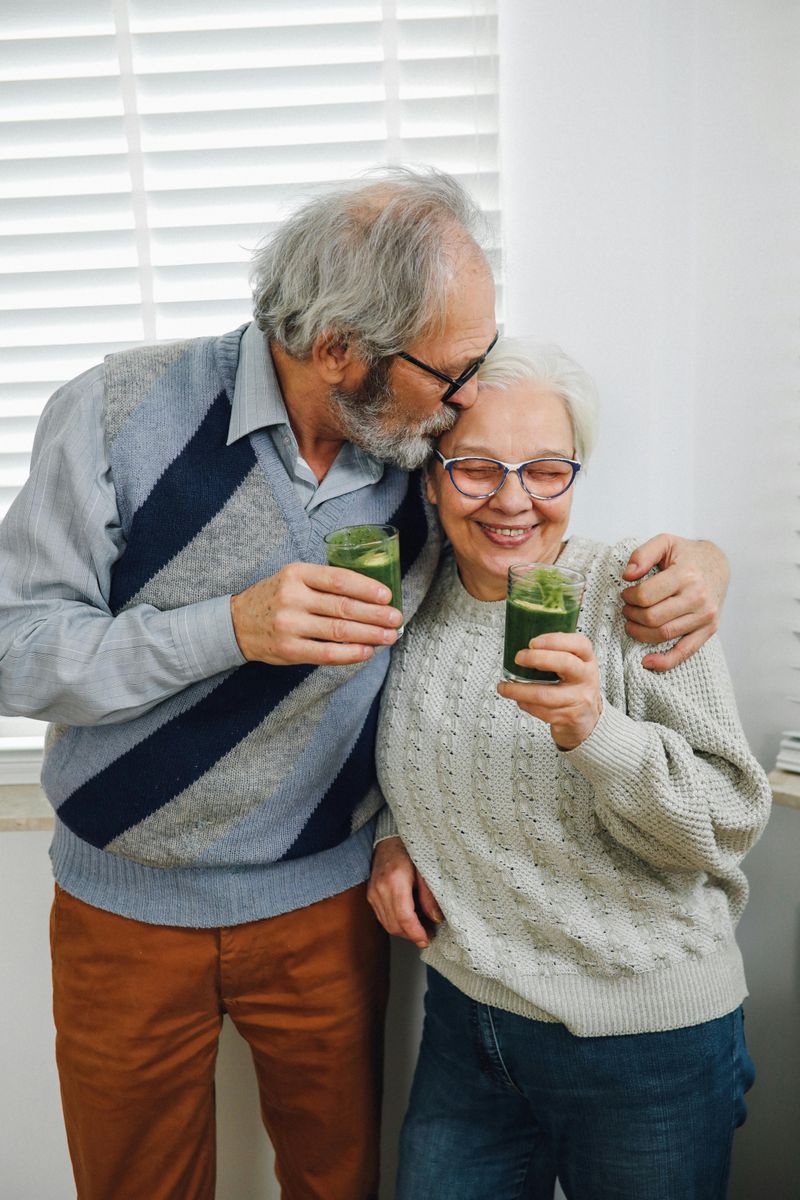Love comes in different forms, but not all of them are healthy. Many people mistake controlling behaviors for care and affection. Understanding the difference between controlling love and caring love helps us build better relationships. These 14 key differences will help you recognize if your relationship is based on control or genuine care.
1. Control vs. Freedom
Controlling love feels like a cage. Your partner decides what you wear, who you talk to, and where you go. They might check your phone, question your every move, or make you ask permission for basic things.
Caring love gives you room to breathe. A caring partner respects your right to make your own choices, have your own friends, and pursue personal interests. They understand that true love doesn’t mean ownership.
When someone truly cares, they celebrate your independence rather than feeling threatened by it. They want you to grow as an individual, not just as half of a couple.
2. Possession vs. Respect
Ever heard someone say “You’re mine” in a way that made you shiver? Possessive partners see you as property, not a person. They use words like “my” too often and get upset when you don’t act according to their expectations.
Respectful love treats you as an equal with your own thoughts and feelings. A caring partner values your opinions even when they differ from theirs. They see you as a whole person, not an extension of themselves.
The difference shows up in small moments – how they introduce you to others, how they talk about you when you’re not there, and whether they defend your right to be yourself.
3. Fear vs. Trust
Walking on eggshells? Controlling relationships run on fear. You worry about upsetting your partner, facing their anger, or triggering jealousy. This constant anxiety becomes so normal you might not even recognize it anymore.
Trusting love feels safe and secure. You know your partner believes in your commitment without demanding constant proof. When issues arise, you face them together rather than through blame or punishment.
In a healthy relationship, you can share your deepest thoughts without fear of judgment. You trust each other’s intentions even during disagreements, knowing that your bond is stronger than any temporary conflict.
4. Manipulation vs. Support
Manipulation wears many disguises – guilt trips, silent treatment, or love bombing followed by coldness. A controlling partner might say “If you really loved me, you would…” or use your insecurities to get their way. These tactics make you doubt your own feelings.
Supportive love strengthens rather than weakens. A caring partner stands beside you during challenges, celebrates your wins, and helps you pursue dreams. They don’t use your vulnerabilities against you.
Notice how you feel after interactions – manipulated love leaves you confused and drained, while supportive love energizes and affirms your worth. Real support doesn’t come with strings attached.
5. Demand vs. Understanding
“You should know what I want!” Controllers make demands without considering your feelings or circumstances. They expect mind-reading and perfect compliance with their unspoken rules. When you fail to meet impossible standards, they see it as proof you don’t care enough.
Understanding partners ask questions before jumping to conclusions. They recognize that everyone experiences emotions differently and make space for your perspective. They approach disagreements with curiosity rather than accusations.
The magic happens in how they respond when you’re upset – do they dismiss your feelings or try to understand them? Do they listen to learn or just to respond? Understanding doesn’t mean always agreeing, but it always means respecting.
6. Insecurity vs. Confidence
Behind controlling behavior lurks deep insecurity. Controllers monitor your activities because they fear losing you or being inadequate. Their jealousy isn’t flattering – it’s a red flag signaling they don’t feel secure in themselves or the relationship.
Confident love doesn’t constantly seek reassurance. Partners who feel secure don’t need to check your location or interrogate you about every conversation with someone else. Their self-worth doesn’t depend on controlling you.
The strength of confident love appears during separation – they miss you but aren’t panicked by time apart. They trust the foundation you’ve built together and know that healthy space actually strengthens your connection.
7. Restrictions vs. Encouragement
“I don’t think that’s a good idea for you.” Controlling partners place roadblocks in your path. They discourage new friendships, career advancements, or hobbies that might threaten their influence. Their “protection” actually prevents your growth.
Encouraging partners become your biggest cheerleaders. They might worry about challenges you face but still support your decisions. They celebrate opportunities that excite you, even when those opportunities don’t include them.
Look at how they react to your ambitions – do they find reasons why you shouldn’t try, or do they help brainstorm how you could succeed? True love wants to see you soar, not clip your wings.
8. Criticism vs. Acceptance
Nothing is ever good enough for a controlling partner. They focus on your flaws, criticize your appearance, or mock your ideas. These constant jabs disguised as “helping you improve” actually erode your self-confidence and independence.
Accepting love embraces your whole self – quirks, imperfections, and all. A caring partner might offer feedback when asked, but it comes from a place of love rather than judgment. They see your potential without demanding perfection.
The difference becomes clear in how they talk about your dreams and decisions. Do they belittle what matters to you? Or do they create a safe space where you can be authentically yourself, even when you’re still figuring things out?
9. Power Struggles vs. Equality
Who gets the final say? Controlling relationships operate like dictatorships. One person makes important decisions, manages the money, or determines the rules. The imbalance might be subtle at first but grows more obvious over time.
Equal partnerships function as a team where both voices matter. Decisions are made together through compromise and mutual respect. Neither person dominates conversations or dismisses the other’s input.
Pay attention to everyday interactions – who chooses where to eat, how money gets spent, or whose career takes priority? Healthy relationships balance power, recognizing that equality doesn’t mean identical contributions but equal value and respect.
10. Jealousy vs. Trust
Green-eyed monsters hide in controlling relationships. Jealousy becomes a daily experience – questioning who texted you, why you smiled at someone, or demanding you cut ties with friends they perceive as threats. This constant suspicion creates a prison of proof and permission.
Trusting partners give you the benefit of doubt. They don’t jump to worst-case scenarios or require constant updates on your whereabouts. They understand that loyalty comes from love, not surveillance.
Healthy relationships have clear boundaries, but they’re built on trust rather than restrictions. A caring partner might feel occasional twinges of jealousy but addresses those feelings without punishing you or creating elaborate rules to control your behavior.
11. Dependence vs. Interdependence
“I can’t live without you” sounds romantic in movies but creates toxic dependence in real life. Controlling partners foster reliance by isolating you from support networks or making you doubt your ability to manage alone. They need you to need them.
Healthy relationships balance togetherness with independence. You function as capable individuals who choose to build a life together. You support each other without becoming each other’s entire emotional support system.
The distinction appears during separations – does time apart cause panic or is it simply missed time together? Interdependent couples maintain their own identities while creating something beautiful together, like two whole people rather than two halves.
12. Obligation vs. Choice
“After everything I’ve done for you…” Controlling love uses guilt and obligation to keep you trapped. Past sacrifices become weapons, and leaving feels impossible because of emotional debts they claim you owe.
Caring love recognizes that relationships require daily choice. A loving partner understands that you stay because you want to, not because you have to. They don’t keep score or use past kindnesses to manipulate your future choices.
Freedom makes love meaningful. When both people know they could leave but choose to stay, the relationship grows from genuine desire rather than fear or obligation. Real love doesn’t hold people hostage with guilt or threats.
13. Fear of Loss vs. Joy of Presence
Constant worry about abandonment drives controlling behavior. Controllers focus on preventing you from leaving rather than appreciating your presence. This fear manifests as clinginess, accusations, or testing your commitment through dramatic scenarios.
Partners who truly care enjoy the moment with you. They don’t spend the present moment worrying about future separations. Their security comes from the quality of your connection, not from forcing you to prove your loyalty.
The contrast shows in daily life – do they seem anxious when you’re not responding immediately? Or can they enjoy their own activities while trusting in your return? Healthy love appreciates what is rather than anxiously protecting against what might be.
14. Selfishness vs. Selflessness
“What about my needs?” Controllers prioritize their comfort, convenience, and desires. They expect you to adapt to their schedule, preferences, and moods while rarely considering yours. The relationship revolves around keeping them happy.
Caring partners balance give and take. They consider your needs alongside their own and make compromises without keeping score. They find joy in your happiness rather than seeing your needs as burdens.
Watch for patterns in daily decisions – who typically gets their way? Whose preferences take priority? In healthy relationships, both people’s needs matter. Neither person consistently sacrifices everything while the other takes without giving back.














